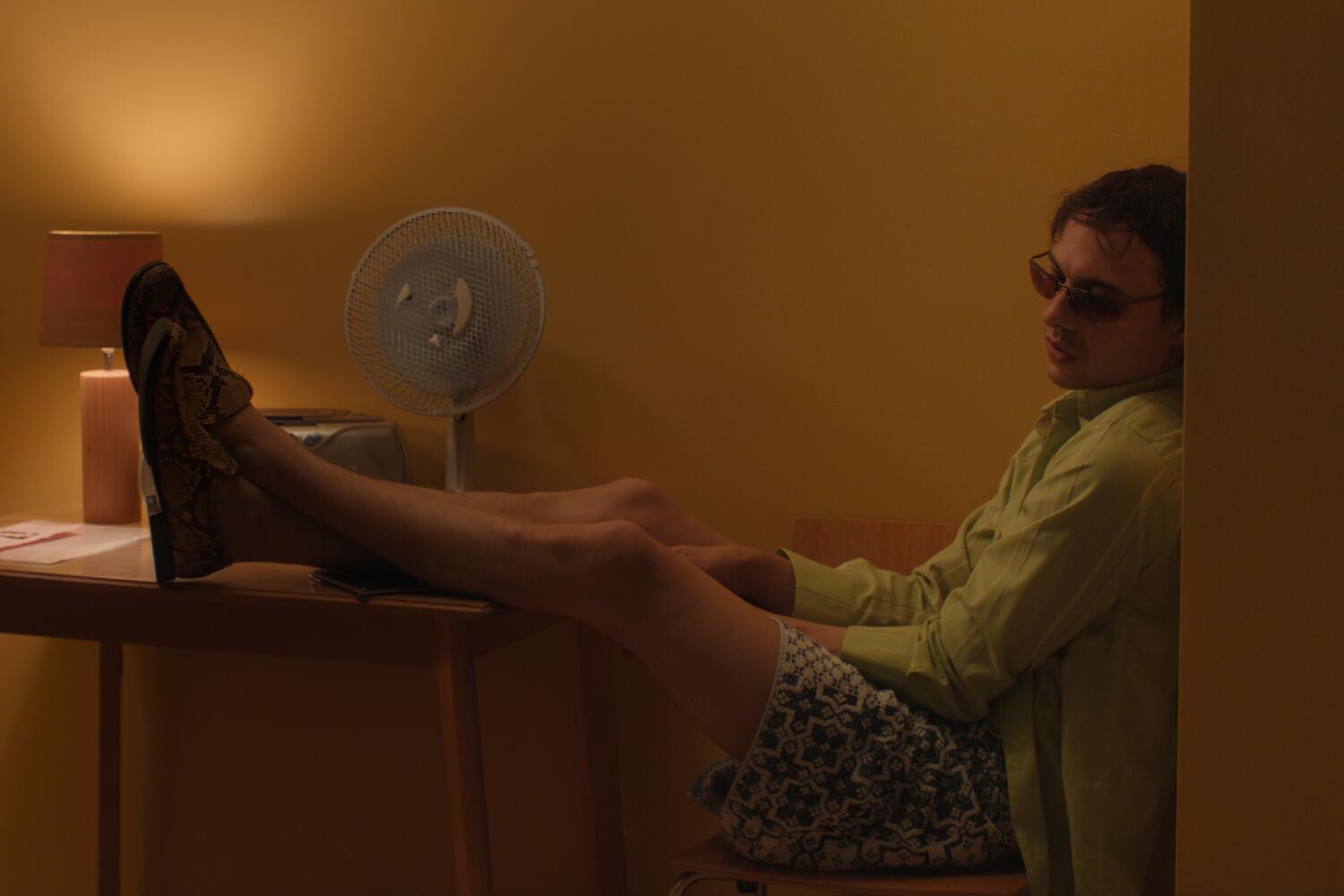| It's awards season crunch time, in the sense that I'm crunching in as much work as I can before a Thanksgiving respite — including a guide to some of the highlights from this week's issue of The Envelope, covered by my profile of Renate Reinsve. |
| Whether it's while you smell turkey legs being turned into gravy (i.e., if you're me as I write this) or as you're lounging around over the holiday weekend, I hope you'll dive into the great stories below. And be sure to take a breather from the mayhem in the process. It's a marathon, not a sprint! |
Digital Cover: Ethan Hawke |
 |
| (Victoria Will / For The Times) |
| In the years since the Golden Age of TV, it's not been uncommon for actors to vie for major awards on both the big and small screens at once. But few in recent memory have done so in such distinct projects as Ethan Hawke in "Blue Moon" and "The Lowdown": One is a chamber drama about the last days of legendary songwriter Lorenz Hart, the other a noirish tale of a hangdog journalist. |
| It's a reflection of the actor's voracious appetite for the unexpected (see also: "Black Phone 2"), which he reveals that some in Hollywood once found "irritating." |
| "Generally, people are more comfortable when they know exactly what you are and what your thing is, and if you keep changing your thing it's confusing," he tells writer Emily Zemler. "But it's always been interesting to me to do different things. It makes acting really exciting to me to keep shaking it up. Each thing has its own geometry and math, and that keeps you really engaged." |
| |
Eva Victor on 'Sorry, Baby' |
 |
| (Jason Armond / Los Angeles Times) |
| One of my favorite films of the year, "Sorry, Baby" works on many levels — as a campus satire, a portrait of a friendship, a slice of small-town life. And as writer-director-star Eva Victor writes in a new essay on the film, it took all of those other levels to make the film's deepest, darkest level possible. |
| "There was a time in my life when I was looking for a film about going through a trauma that held my hand while I was watching it," Victor notes, contrasting "Sorry, Baby" with films that depict similar subjects with violent imagery. "I needed the film to care for me, the person who'd been through the difficult thing. I didn't need a film that existed to teach people how bad it is to go through a bad thing, I needed a film that existed to make me feel less alone." |
| |
How 'F1' became a part of F1 |
 |
| (Apple TV) |
| As an avowed fan of Formula One, from docuseries "Drive to Survive" to scripted miniseries "Senna," what fascinated me most watching Apple TV's summer blockbuster "F1" was the delicate logistical dance it must've required to shoot a major theatrical film at actual races on the actual F1 circuit. Maybe that's my stressed-out editor brain at work, but I asked Nate Rogers to dig into the question. |
| He reports back that even with legendary racer Lewis Hamilton and Apple on board, the film had to prove "that they could set up at an event like the fabled British Grand Prix at Silverstone and not cause a pileup." |
| "We had to rehearse the blocking and staging for about two weeks with a stopwatch ... to prove to them that we could actually shoot a scene and get off the track before the race started," director Joseph Kosinski tells Rogers. |
| I can recognize a tough deadline when I see one. |
| Keep up with California | Your support helps us deliver the news that matters most. Subscribe to the Los Angeles Times. | | | | | |
Additional highlights from our Nov. 25 issue |
|
| |
| |
| |
| |
| |
| |
| |
| |


















